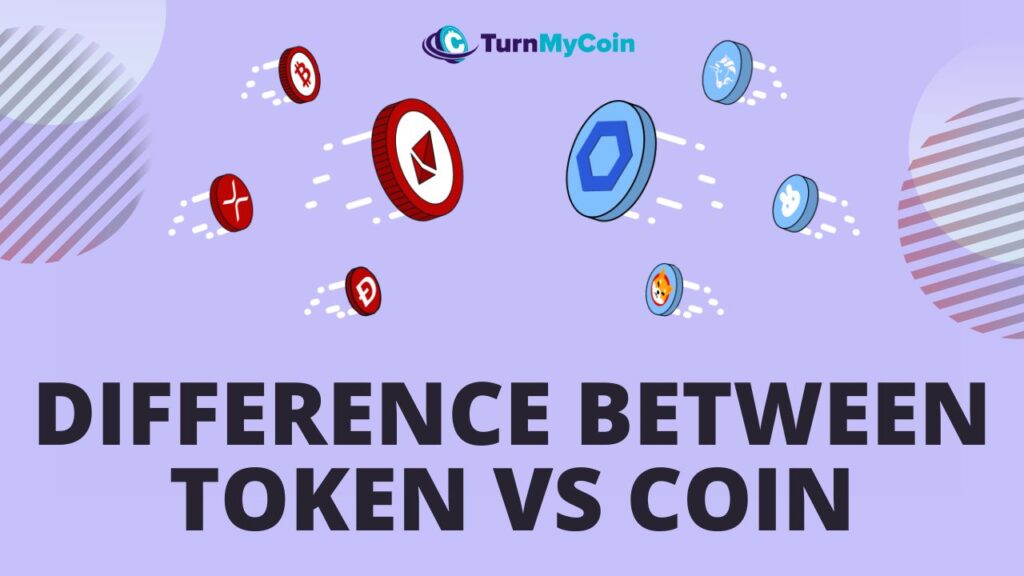Last updated on March 22nd, 2023 at 07:50 am
Introduction
Almost everyone who has ever used cryptocurrencies has occasionally confused a token with a coin (Coins vs Tokens). Coins and tokens have a lot of fundamental similarities. Both have the ability to represent value and process payments. Tokens can be traded in for cash and vice versa. And the main difference between these two is utility.
Specific markets only take coins; tokens are not accepted there. In this article, we will understand the difference between Coins vs Tokens.
Taking a simpler example here, let’s compare traders and investors. Both are comparable because all traders invest, while not all investors trade. Remember that most cryptocurrency users usually hold both coins and tokens in their possession. To be clear, the next time you compare tokens and coins, let’s go over some of the most important differences. Let us dig into the difference between Coins Vs Tokens.
How Do Tokens and Coins Differ?
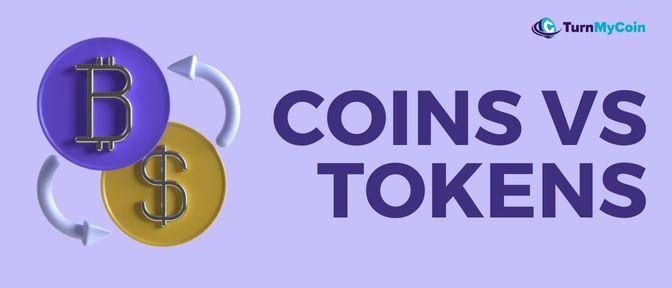
Even though the terms “crypto coin,” “crypto token,” and “cryptocurrency” are sometimes used interchangeably, they all have distinct definitions.
Though both employ distributed ledger technology or blockchain, there are several key differences between tokens and coins.
Coins in cryptocurrencies are digital representations of money, whereas tokens stand in for assets or deeds. Tokens may be bought using coins. But some tokens, such as a company’s stock, might be worth more than all of the others combined. A token typically has usage restrictions, so it doesn’t have the same level of liquidity as a coin.
Briefly said, cryptocurrencies are a kind of digital money that is usually included in blockchains and is primarily used for value storage and exchange.
Crypto tokens are digital assets that may be used to represent real-world objects or access platform-specific features and services. They are constructed on top of an existing blockchain using smart contracts.
How do Coins work?
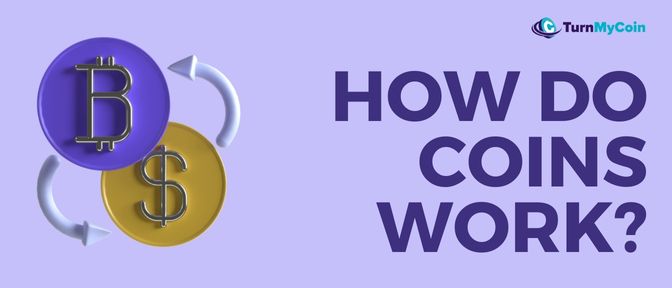
Often native to its blockchain, a crypto coin is a digital currency that serves as a store of value and a means of exchange. The earning of coins through proof of stake or proof of work mining (PoS), Cardano, Bitcoin (BTC), Ether (ETH) are some examples (ADA).
When Bitcoin originally appeared, it established the criteria for a coin. As a result, cryptocurrencies have distinct characteristics that set them apart from tokens, which resemble conventional currencies. This is one of the main point of Coins Vs Tokens.
The following characteristics constitute a coin:
- Functions using its blockchain. A blockchain records all transactions involving its cryptocurrency. The Ethereum blockchain receives the payment receipt from an Ethereum transaction. The ticket is added to the Bitcoin blockchain if the same person later pays you back in bitcoin. Every network user can access every transaction, which is encrypted for security.
- Bitcoin was developed specifically to displace conventional currency. However, other coins, including ETH, NEO, and Litecoin, were created due to the paradoxical appeal of transparency and anonymity.
Today, you can use cryptocurrencies to pay for goods and services from several well-known companies, like Tesla, Microsoft, and Amazon. Bitcoin has now been approved as legal money in El Salvador alongside the US dollar.
- It is dispersible. Bitcoin miners employ this tactic to boost their profits. There aren’t enough Bitcoins accessible for mining, which is the problem. As a result, the work grows more complex every day.
What Purposes Do Coins Serve?
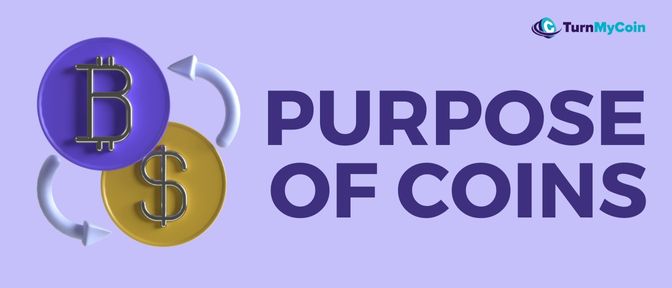
When Bitcoin was developed, it was intended to take the place of conventional fiat currencies.
It was created to function similarly to paper money and metal coins.so it can be used for a lot of the same things as US dollars or euros, such as:
- Preserving value
- Converting to different currencies
- Spending money on goods and services
- Shifting to others
Some cryptocurrency coins can employ intelligent contract technology to add other capabilities in addition to these more conventional uses. For instance, the Cryptocurrency DASH functions as a currency but allows its owners to cast votes in a decentralised autonomous organisation (DAO).
How do tokens work?
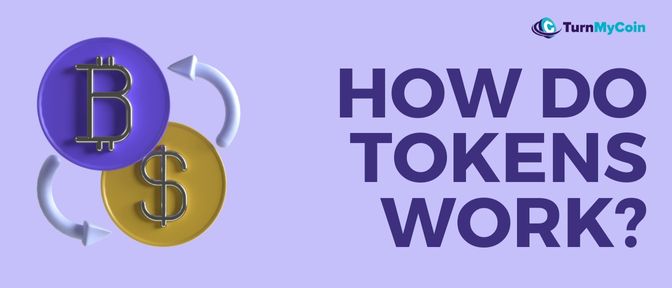
Crypto tokens are created utilising blockchain technology, just like cryptocurrencies, but they aren’t part of a blockchain. Instead, they are constructed on top of it, frequently using smart contracts to achieve various goals. Thats how Coins Vs Tokens differ.
Crypto tokens resemble assets or deeds more than cryptocurrency coins, which are models of conventional money.
For example, a cryptocurrency token may represent a portion of ownership in:
- a DAO,
- a digital good,
- an NFT, or even
- a tangible item.
Crypto tokens are like currencies that may be bought, sold, and exchanged, but they are not a form of money. To put it another way, crypto tokens are more akin to coupons or vouchers than crypto coins are to dollars and cents.
Different kinds of cryptocurrency tokens include:
Some governance tokens allow their owners to vote in DAO elections. Utility tokens may provide access to certain services or goods created by the token issuer. Let’s see how it differs in Coins Vs Tokens.
Security tokens behave and are even viewed by several governmental organisations in the same way as conventional securities. Everybody has at least once in their life used a ticket. A token is a voucher you received in the mail for dinner for two. A permit is your vehicle’s title. The value of the title is transferred to the new owner when you sell your car.
However, neither a computer with such title nor a meal coupon can be purchased from Microsoft.
Another noteworthy quality of tokens is their ease of manufacture. In some networks like Ethereum, you can brand your tokens and start trading immediately. Market makers can therefore be anyone with little to no technical knowledge. In decentralised markets, this type of behaviour is very common.
For a decentralised project, a cryptocurrency token is created on an existing blockchain (usually Ethereum and Binance Smart Chain, the most popular blockchains for decentralised projects to build upon). A token offers its owners platform-specific functionality or symbolizes an asset. Tokens perform various tasks, such as usefulness, security, and governance.
What Purposes Do Tokens Serve?
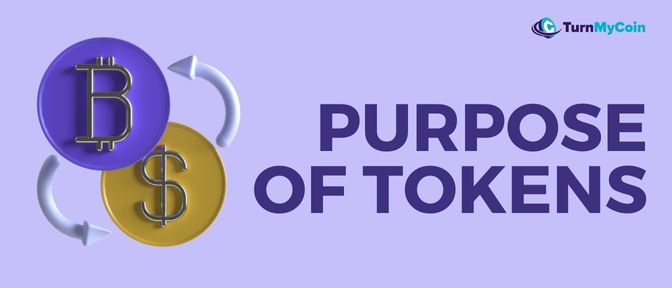
The majority of cryptocurrency tokens are made to be utilized in apps or blockchain-based projects. Unlike bitcoins, which are mined, tokens are created and distributed by the project developer.
Once they have purchasers or regular cryptocurrency tokens, tickets may be utilized in various ways. To fully use cloud storage, Filecoin (FIL) and Arweave (AR) users can trade their utility tokens for the privilege to store data on their decentralized networks.
Similarly, Axie Infinity, one of the market’s most popular play-to-earn (P2E) platforms, provides a utility token called Smooth Love Potions (SLP). By acquiring or spending SLP, players may complete exclusive in-game objectives.
What Are Stablecoins, Anyway?
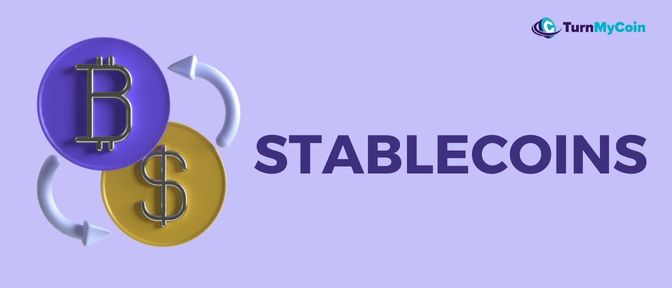
Cryptocurrencies called stablecoins are linked to particular assets. They are somewhat misleading because most of them are ERC-20 tokens (i.e., they operate on the Ethereum blockchain through a smart contract).
Why are they known as stablecoins? The term suggests that its primary purpose is as a means of exchange. Consider USD Coin (USDC), for instance. It is an ERC-20 token built on smart contracts and does not have its chain. To keep the value of each USDC at $1, it is backed by US dollars held in the company’s possession that issues the token.
You can know more about popular stablecoins here>> Differences between USDT, USDC, TUSD, BUSD, DAI.
In summary
Although the difference between coin and token is not massive, it can be highly problematic if it is routinely disregarded. You can find it easier to choose which thing to utilize immediately if you pay close attention to the ones you buy.
In most cases, you would require coins if it were a product. However, you may use utility tokens if it’s a service. It’s incredible how utilizing tokens functions quite similarly to using money.
Real money is actually transferred from one hand to another during cash transactions. We did, however, make clear that only coins may be used to symbolize money and that they are immovable. Are financial marketers playing with our sense of reason in this way? The next time you’re feeling reflective, give that some thought.
